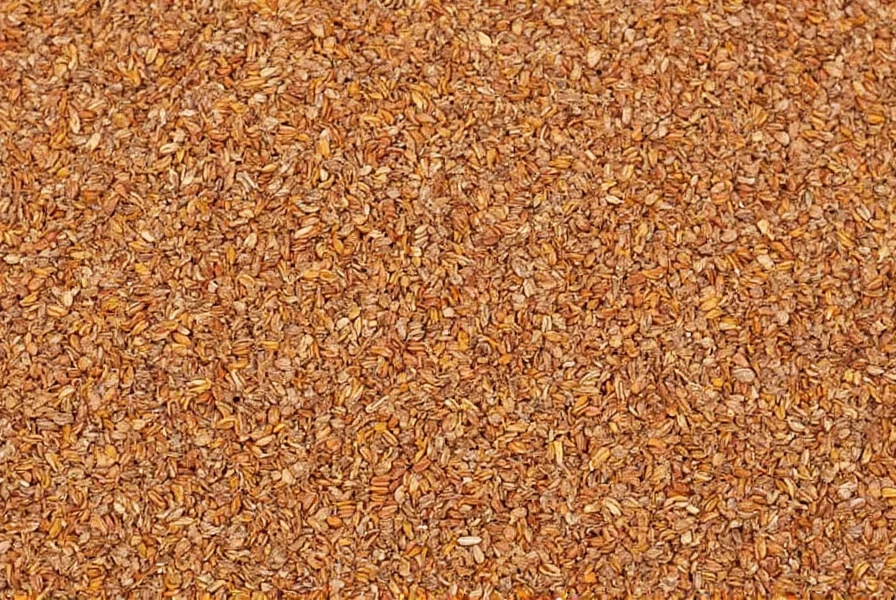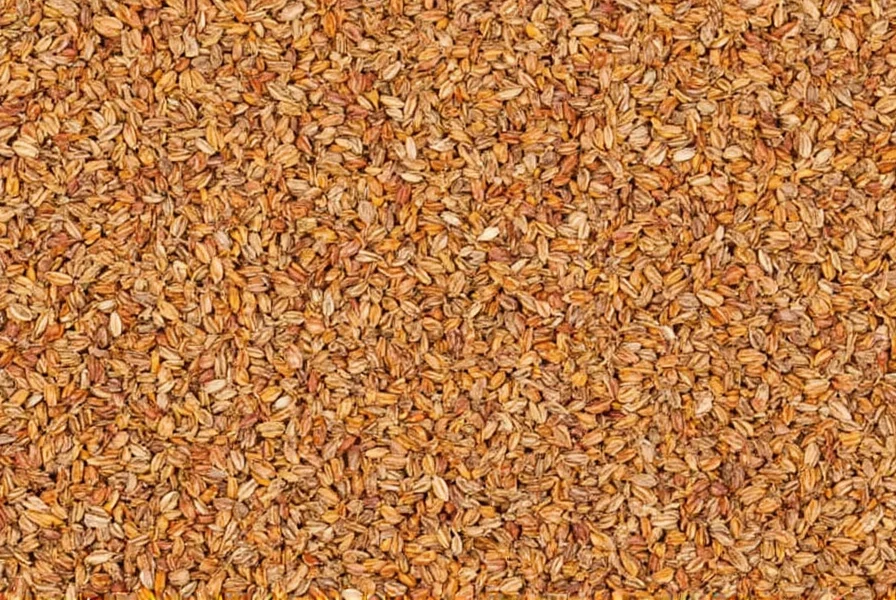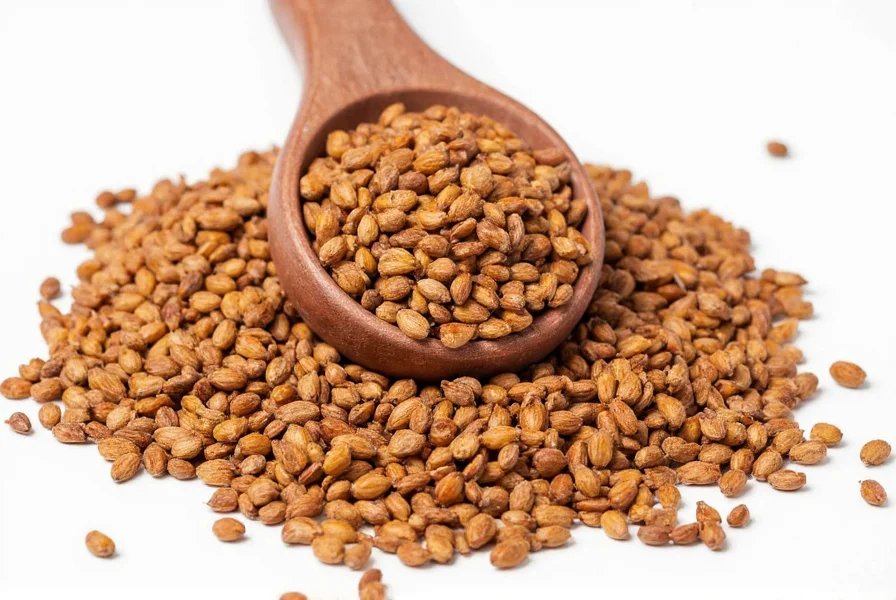Cumin seeds (Cuminum cyminum) have been used for centuries in traditional medicine and culinary practices across Asia, Africa, and the Middle East. Modern research continues to validate many of these traditional uses while uncovering new potential health applications. This comprehensive guide examines the evidence-based benefits of incorporating cumin seeds into your diet.
Nutritional Profile of Cumin Seeds
Before exploring specific health benefits, understanding cumin's nutritional composition provides context for its therapeutic potential. Cumin seeds contain numerous bioactive compounds that contribute to their health-promoting properties.
| Nutrient | Amount per Teaspoon (2.1g) | % Daily Value |
|---|---|---|
| Calories | 8 | 0.4% |
| Iron | 0.4 mg | 23% |
| Manganese | 0.1 mg | 4% |
| Magnesium | 3.2 mg | 1% |
| Calcium | 12.6 mg | 1% |
The primary bioactive compounds in cumin seeds include cuminaldehyde (responsible for its distinctive aroma), terpenes, phenols, flavonoids, and alkaloids. These compounds work synergistically to produce the various health benefits associated with cumin consumption.
Science-Backed Health Benefits of Cumin Seeds
Digestive Health Improvement
One of the most well-documented cumin seeds benefits is their positive impact on digestive function. Clinical studies demonstrate that cumin stimulates digestive enzyme secretion from the pancreas, enhancing the breakdown of carbohydrates, fats, and proteins. Research published in the Journal of Ethnopharmacology found that participants with irritable bowel syndrome who consumed cumin extract experienced significant reductions in bloating, abdominal pain, and irregular bowel movements compared to placebo.
Traditional Ayurvedic medicine has long recommended cumin for digestive issues, and modern science continues to validate these applications. The carminative properties of cumin help reduce gas formation while its antispasmodic effects alleviate intestinal cramping.
Powerful Antioxidant Protection
Cumin seeds rank among the spices with highest antioxidant activity. The Oxygen Radical Absorbance Capacity (ORAC) value of cumin measures approximately 6,600 μmol TE/100g, indicating substantial free radical-scavenging capability. These antioxidant properties of cumin seeds help protect cells from oxidative damage that contributes to chronic diseases and aging.
A 2020 study in Nutrients demonstrated that regular cumin consumption increased antioxidant enzyme activity in participants' blood, including superoxide dismutase and glutathione peroxidase. This natural enhancement of the body's antioxidant defense system represents one of the key long-term health benefits of incorporating cumin into your daily diet.
Blood Sugar Regulation Potential
Emerging research suggests cumin seeds benefits for blood glucose management. A randomized controlled trial published in Complementary Therapies in Medicine found that participants with type 2 diabetes who consumed 3 grams of cumin powder daily for eight weeks showed significant improvements in fasting blood glucose and HbA1c levels compared to the control group.
The mechanism appears to involve multiple pathways: cumin may improve insulin sensitivity, enhance pancreatic beta-cell function, and slow carbohydrate digestion. While promising, researchers note that cumin should complement—not replace—standard diabetes management approaches. Those exploring natural blood sugar control methods with cumin seeds should consult healthcare providers for personalized guidance.
Cholesterol Management Effects
Several studies indicate that cumin seeds benefits extend to cardiovascular health through lipid profile improvement. Research in the Journal of Clinical and Diagnostic Research reported that participants consuming cumin extract experienced significant reductions in LDL cholesterol and triglycerides while maintaining or increasing HDL cholesterol levels.
The cholesterol-lowering effects of cumin seeds appear connected to their ability to enhance bile acid secretion, which helps remove excess cholesterol from the body. Additionally, the antioxidant properties prevent oxidation of LDL cholesterol—a critical step in atherosclerosis development. For those seeking natural cholesterol management solutions, cumin represents a flavorful dietary addition worth considering.
Rich Source of Bioavailable Iron
One of the most impressive nutritional aspects of cumin seeds is their iron content. Just one teaspoon provides approximately 23% of the daily iron requirement, making it an excellent plant-based iron source. What makes cumin particularly valuable is that its iron comes with vitamin C and other compounds that enhance absorption—a significant advantage over many other plant-based iron sources.
This makes cumin seeds benefits especially relevant for vegetarians, vegans, and individuals with iron deficiency. A study in Nutrition Research found that adding cumin to meals increased iron absorption by 35% compared to meals without cumin. For those exploring natural remedies for iron deficiency anemia, incorporating cumin into daily cooking represents a simple, evidence-based strategy.
How to Incorporate Cumin Seeds Into Your Diet
Understanding the health benefits of cumin seeds is only valuable if you know how to effectively include them in your daily nutrition. Here are practical ways to maximize cumin seeds benefits:
- Dry roasting: Lightly toast whole cumin seeds before grinding to enhance flavor and bioactive compound availability
- Cumin water: Soak one teaspoon of cumin seeds in water overnight and drink the strained liquid in the morning
- Cooking staple: Add to curries, stews, soups, and vegetable dishes during the tempering stage
- Spice blends: Include in homemade curry powders, garam masala, and chili seasonings
- Salad dressings: Mix ground cumin with olive oil, lemon juice, and herbs
For maximum benefit, nutrition experts recommend consuming 1-2 teaspoons of cumin seeds daily. The optimal time to consume cumin for digestion is before meals, while taking it with vitamin C-rich foods enhances iron absorption.

Potential Side Effects and Precautions
While cumin seeds benefits are substantial, it's important to understand potential considerations:
- Pregnancy: Large medicinal doses may stimulate uterine contractions; culinary amounts are generally considered safe
- Blood sugar: May enhance diabetes medication effects, requiring blood glucose monitoring
- Bleeding risk: High doses might increase bleeding time, especially before surgery
- Allergies: Rare but possible, particularly in individuals sensitive to other Apiaceae family plants
Most people tolerate culinary amounts of cumin (1-2 teaspoons daily) without issues. Those with specific health conditions or taking medications should consult healthcare providers before using cumin medicinally. Understanding both the benefits and limitations of cumin seeds ensures safe and effective incorporation into your wellness routine.
Cumin Compared to Other Spices
When evaluating natural health solutions, understanding how cumin stacks up against other spices provides valuable context. While turmeric contains curcumin (known for anti-inflammatory effects) and ginger offers digestive benefits, cumin provides a unique combination of iron density, digestive enhancement, and cholesterol management properties.
What makes cumin particularly valuable is its versatility—it works well in both savory and sweet dishes across multiple cuisines. Unlike some spices that require black pepper or fats for optimal absorption (like turmeric), cumin's bioactive compounds are readily available without special preparation. For those seeking comprehensive natural health support through spices, incorporating cumin alongside other beneficial spices creates a synergistic effect greater than any single spice alone.

Conclusion: Maximizing Cumin Seeds Benefits
The scientific evidence supporting cumin seeds benefits continues to grow, validating centuries of traditional use. From digestive health to antioxidant protection, cholesterol management to iron provision, cumin offers multiple pathways to enhanced wellbeing. The key to maximizing these benefits lies in consistent, appropriate incorporation into your daily diet rather than occasional medicinal use.
As with any natural health approach, cumin works best as part of a balanced diet and healthy lifestyle. By understanding both the proven benefits and realistic limitations of cumin seeds, you can make informed decisions about incorporating this ancient spice into your modern wellness routine. The most significant cumin seeds benefits emerge through regular, moderate consumption as part of an overall healthy dietary pattern.
Frequently Asked Questions
What is the best way to consume cumin seeds for maximum health benefits?
For optimal absorption of cumin's bioactive compounds, lightly dry roast whole seeds before grinding them fresh. Consuming 1-2 teaspoons daily in cooking provides maximum benefits. Adding cumin to warm dishes during the tempering stage (tadka) enhances flavor compound release. For digestive benefits, try cumin water—soak one teaspoon of seeds in water overnight and drink the strained liquid in the morning before eating.
How long does it take to see benefits from consuming cumin seeds regularly?
Most people notice digestive improvements within 1-2 weeks of regular consumption (1-2 teaspoons daily). Significant changes in biomarkers like cholesterol levels typically require 6-8 weeks of consistent use. Iron status improvements may take 2-3 months to become measurable. The timeline varies based on individual health status, diet quality, and the specific benefit being measured.
Can cumin seeds help with weight loss?
While cumin isn't a magic weight loss solution, research suggests it may support healthy weight management. A study in the Complementary Therapies in Medicine found that participants consuming cumin powder lost significantly more weight than the control group over eight weeks. Cumin appears to enhance metabolism, improve fat digestion, and reduce inflammation—all factors that support healthy weight. However, these effects work best when combined with a balanced diet and regular exercise.
Are there any medications that interact with cumin seeds?
Cumin may interact with diabetes medications by enhancing their blood sugar-lowering effects, potentially causing hypoglycemia. It might also increase bleeding risk when taken with anticoagulants like warfarin. Some evidence suggests cumin could affect liver enzymes that process certain medications. If you take prescription medications, especially for diabetes, blood clotting, or liver-metabolized drugs, consult your healthcare provider before consuming cumin in medicinal amounts.
What's the difference between whole cumin seeds and ground cumin in terms of health benefits?
Whole cumin seeds retain their bioactive compounds longer—up to 2 years when stored properly—while ground cumin loses potency within 6 months. Whole seeds require dry roasting to maximize flavor compound release, whereas ground cumin is ready to use. Nutritionally, both forms offer similar benefits, but whole seeds generally provide slightly higher concentrations of volatile oils. For maximum health benefits, purchase whole seeds and grind them fresh as needed.











 浙公网安备
33010002000092号
浙公网安备
33010002000092号 浙B2-20120091-4
浙B2-20120091-4